F. W. de Klerk
description: 7th state president of South Africa from 1989 to 1994
27 results
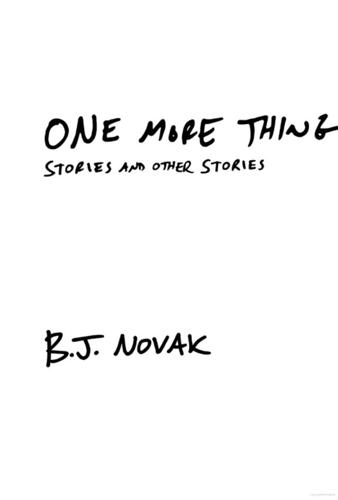
One More Thing: Stories and Other Stories
by
B. J. Novak
Published 4 Feb 2014
(Applause) President Mandela, you took one of the most unjust nations on earth and made it what it is today: one of the most violent nations on earth. (Laughter) I’m not saying life is cheap in Africa, but when they make movies over there? They use blood as fake ketchup. (Laughter) And the stars really came out for you, President Mandela. Nobel Peace Prize winner F. W. de Klerk is here, everybody. Of course the “F. W.” stands for “Fucking Who?” (Laughter, de Klerk nods politely) F. W. de Klerk is the man who co-orchestrated the transition from apartheid rule to an era of democracy. Dr. de Klerk, you’ve somehow accomplished the impossible: you’ve made more black men happy than Lisa Lampanelli. Lisa Lampanelli stands and makes an obscene gesture toward Archbishop Desmond Tutu.
…
There is currently no broadcast date for this special. ANNOUNCER: Welcome to the Comedy Central Roast of Nelson Mandela! With Jeffrey Ross! Lisa Lampanelli! Archbishop Desmond Tutu! Archbishop Don “Magic” Juan! Winnie Mandela! Sisqo! Anthony Jeselnik! Pauly D! Former South African prime minister F. W. de Klerk! Sarah Silverman! A special appearance by His Holiness the Dalai Lama! And Gilbert Gottfried! And now, ladies and gentlemen, the “Roastmaster General” himself, JEFFREY ROSS! Jeffrey Ross enters dressed as Honey Boo Boo Child. He turns slowly to reveal his costume. He receives a standing ovation.
…
Poor Jeff Ross—too ugly to come dressed as Honey Boo Boo Child, too fat to come dressed as her mother. (Laughter; Mandela smiles politely) President Mandela, I read that the reason you and your best friend left your small hometown for Johannesburg at age sixteen was to avoid an arranged marriage. (Mandela nods) So with all due respect to F. W. de Klerk: shouldn’t you be sharing your Nobel Peace Prize with this chick who was so hideous that she caused you to jump on a train for a thousand miles to avoid banging her? (Applause) But President Mandela isn’t the only Nobel laureate here—Archbishop Desmond Tutu is here. Yeah. Yeah. (Applause) Archbishop Tutu, in 2007 you convened a group with President Mandela, Kofi Annan, and others so that you could contribute your wisdom and leadership to tackling the world’s toughest problems.
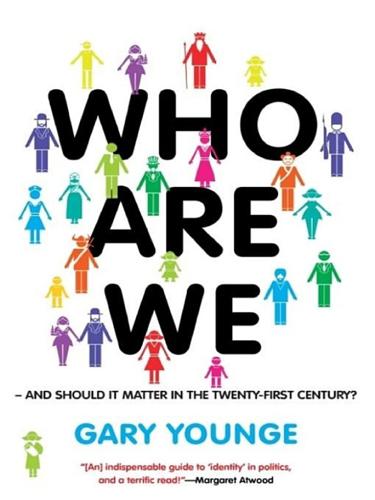
Who Are We—And Should It Matter in the 21st Century?
by
Gary Younge
Published 27 Jun 2011
“Colored identity has never been seen as an identity ‘in its own right.’ It has been negatively defined in terms of ‘lack’ or taint or in terms of a remainder of excess which does not fit a classificatory scheme.” Accusations of inauthenticity came from whites and blacks. In 1983, Marike de Klerk, wife of the apartheid leader F. W. de Klerk, described coloreds as “a negative group. The definition of a colored in the population register is someone who is not black, and is not white and is also not Indian, in other words a no-person. They are the leftovers. They are the people who were left after the nations were sorted out. They are the rest.”
…
“The Hindu became Hindu only when the British created the class in the early 19th century, to take in those who weren’t members of the famous monotheisms, and the identity gained salience only in opposition to the South Asian Muslims.” But quite how these different identities relate to each other is entirely contingent on their context. This was clearly illustrated during an interview I had with the former South African leader F. W. de Klerk, who tried to make apartheid sound a bit like an abortive attempt to create an early version of the European Union in Africa—a region split into various national groupings where each kept their autonomous jurisdiction but remained part of a whole. “When I was a young man, I supported the idea of building a federation that would look a little bit like Europe,” he said.
…
Carter, Stephen Casey, Norah Cedarbaum, Miriam Cheney, Dick Childbirth birth rates Chisholm, Shirley Civil rights Civil Rights Act (1968) NAACP Clapham Class Cleary, Marie Clinton, Bill Clinton, Chelsea Clinton, Hillary Clyburn, Jim Colbert, Stephen Colonialism Colored identity Commission for Racial Equality Connolly, Linda Conservative Party (UK) Cooper, Carolyn Coulter, Ann Cox, Adam B. Crisp, Quentin Croats Croke Park (Dublin) Crouch, Stanley Cultural identity Christianity and Flemish cultural identity language and See also Identity Davis, Angela Davis, Mike Davis, Nira Yuval Dayle, Philip d’Azeglio, Massimo de Block, Eddie De Bont, Eileen de Klerk, F. W. de Klerk, Marike Dejagah, Ashkan Democracy apartheid’s transition to globalization and– Democratic Party (US) DeStefano, John Diaspora– Dickerson, Debra Discrimination Doennig, Randy Dolan, Patrick D’Oliveira, Basil Domestic violence Douglass, Frederick Douglass, Ramona Dowling, Mary– Doyle, Roddy Druckman, Chaim Du Bois, W.

The Rough Guide to Cape Town, Winelands & Garden Route
by
Rough Guides
,
James Bembridge
and
Barbara McCrea
Published 4 Jan 2018
The garden-cum-park is a pleasant place to meander, with a good outdoor café situated under massive trees. De Tuynhuys Government Ave • Not open to the public Peer through an iron gate to see the grand facade and tended flowerbeds of De Tuynhuys, the office (but not residence) of the president. In 1992, President F.W. de Klerk announced outside this beautiful eighteenth-century building that South Africa had “closed the book on apartheid”. Under the governorship of Lord Charles Somerset (1814–26), an official process of Anglicization at the Cape included his private obsession with architecture, which saw the demolition of the two Dutch wings of De Tuynhuys in Government Avenue.
…
The restaurants and cafés on the mall’s southeast side, with their outdoor seating, have fabulous views of Table Mountain across the busy harbour. Wandering south, you’ll pass the Amphitheatre, where local musicians regularly perform. Look out, too, for Nobel Square, with its bronze statues of South Africa’s four Nobel Peace Prize-winners: Archbishop Desmond Tutu (1984); Nelson Mandela and F.W. de Klerk (both 1993); and the least familiar, Chief Albert John Lutuli (1960), former president of the African National Congress (ANC) and the first African to receive the award. Watershed Dock Rd • Daily 10am–7pm • waterfront.co.za Superseding the old Red and Blue Shed craft markets, the Watershed is a colourful converted warehouse that houses over 150 shops and stalls.
…
Botha blustered and wagged his finger at the opposition through the late 1980s, while his bloated military sucked the state coffers dry as it prosecuted its dirty wars. Even National Party stalwarts realized that his policies were leading to ruin, and in 1989, when he suffered a stroke, the party was quick to replace him with F.W. de Klerk, who immediately proceeded to announce reforms. Botha lived out his unrepentant retirement near George, declining ever to apologize for any of the brutal actions taken under his presidency to bolster apartheid. Curiously, when he died in 2006, he was given an uncritical, high-profile state funeral, broadcast on national television and attended by members of the government, including then-president, Thabo Mbeki.
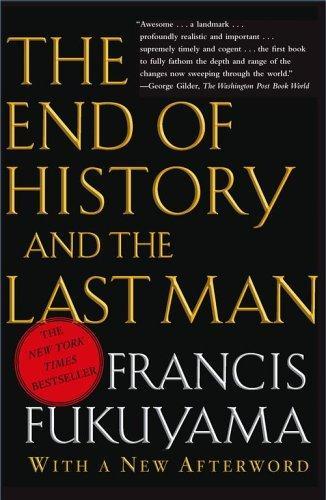
The end of history and the last man
by
Francis Fukuyama
Published 28 Feb 2006
With the passing of much of the old guard in the ruling Guomindang party, there has been growing participation by other sectors of Taiwanese society in the Nationalist Parliament, including many native Taiwanese. And finally, the authoritarian government of Burma has been rocked by prodemocracy ferment. In February 1990, the Afrikaner-dominated government of F. W. de Klerk in South Africa announced the freeing of Nelson Mandela and the unbanning of the African National Congress and the South African Communist party. He thereby inaugurated a period of negotiations on a transition to power sharing between blacks and whites, and eventual majority rule. In retrospect, we have had difficulty perceiving the depths of the crisis in which dictatorships found themselves due to a mistaken belief in the ability of authoritarian systems to perpetuate themselves, or more broadly, in the viability of strong states.
…
Such an effort at social engineering was both monumental in its ambition and, in retrospect, monumentally foolish in its ultimate aim: by 1981, almost eighteen million blacks were arrested under the so-called “pass-laws” for the crime of wanting to live near their places of employment. The impossibility of defying the laws of modern economics had, by the late 1980s, led to a revolution in Afrikaner thinking that caused F. W. de Klerk, well before he became state president, to assert that “the economy demands the permanent presence of millions of blacks in urban areas” and that “it does not help to bluff ourselves about this.”19 The apartheid system’s loss of legitimacy among whites was thus ultimately based on its ineffectiveness, and has led to an acceptance on the part of a majority of Afrikaners of a new system of power sharing with blacks.20 While recognizing the real differences that exist between these cases, there was a remarkable consistency in the democratic transitions in Southern Europe, Latin America, and South Africa.
…
Between 1948 and 1988 they underwent a dramatic transformation into an urban, educated, and increasingly entrepreneurial white-collar society.10 With that education came contact with the political norms and trends of the outside world, from which they could not isolate themselves. The liberalization of South African society had already started in the late 1970s with the re-legalization of black trade unions and the relaxation of censorship laws. By the time of F. W. de Klerk’s opening to the African National Congress in February 1990, the government was in many ways simply following the opinion of its white electorate, now little different in educational and occupational achievement from its counterparts in Europe and America. The Soviet Union as well has been undergoing a comparable social transformation, though at a slower pace than the countries of Asia.
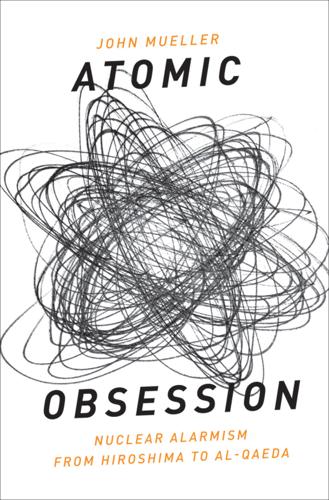
Atomic Obsession: Nuclear Alarmism From Hiroshima to Al-Qaeda
by
John Mueller
Published 1 Nov 2009
Accordingly, there was no great pressure from the military to divert its budget in this manner, and it was not even involved in the decision. A major driving force appears to have been the personal preferences of Defense Minister, and later President, P. W. Botha, who was reportedly singularly fixated on obtaining nuclear weapons. It became something of a pet project for him.18 His successor, F. W. de Klerk, set about dismantling the project shortly after taking office in September 1989. By that time, Soviet connections to South Africa’s northern neighbors had been much scaled back, and the cold war was in the process of evaporating. However, de Klerk had never had enthusiasm for what he called a “massive spending programme,” and the changing security environment, concludes analyst Peter Liberman, “was at best a permissive condition for dismantling.”19 In addition to his hostility to a costly and seemingly pointless weapons program, de Klerk was substantially motivated by a desire to lead his country, shunned and sanctioned by most countries for its racial apartheid policy, back into the world.
…
Costs: Liberman 2001, 55; Reiss 1995, 15, 30; Reiss notes, however, that the program “siphoned off many of the country’s most talented scientists and engineers,” and this must be factored in when assessing the costs of the program (43n117). Danger remote: Liberman 2001, 58. Unthinkable: Reiss 1995, 29. Military: Liberman 2001, 66–67. Fixated: from a “well-placed” source, Liberman 2001, 64. Pet project: according to F. W. de Klerk: Liberman 2001, 72–73. 19. Soviet connections: Liberman 2001, 74–75; Reiss 1995, 20–21. de Klerk: Liberman 2001, 74; see also Reiss 1995, 19. Permissive condition: Liberman 2001, 75. 20. Large role: Reiss 1995, 28. Sensitivity, consistent with Solingen: Liberman 2001, 83–84. 21. Reiss 1995, 32. 22.
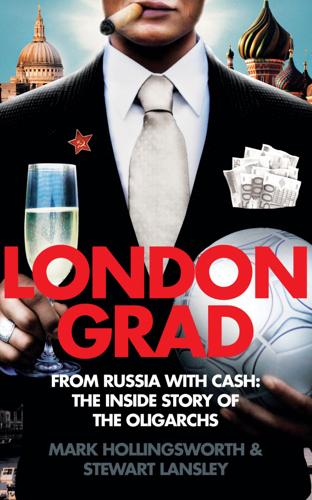
Londongrad: From Russia With Cash; The Inside Story of the Oligarchs
by
Mark Hollingsworth
and
Stewart Lansley
Published 22 Jul 2009
Berezovsky was clearly impressed by the man who had honed his skills at the advertising agency Saatchi & Saatchi in the 1970s and whose personal allure led one former colleague to comment, ‘He was so charming that dogs would cross the street just to be petted by him.’ Berezovsky was impressed by the spin doctor’s energy, charm, and guile, and even more so by the leading figures he had advised: Lady Thatcher while she was Prime Minister, Rupert Murdoch, his business hero, and former President F. W. de Klerk of South Africa. Optimistic, articulate, and well connected, the chain-smoking Lord Bell was also a power broker and Berezovsky hired him as much for his contacts book as for his PR skills. ‘Using Tim Bell is the communications equivalent of dialling 911,’ said one industry executive. After leaving Saatchi & Saatchi, Bell moved into public relations.
…
Much of Berezovsky’s political networking has been filtered through the little-known Global Leadership Foundation (GLF), which comprises a group of former political leaders who provide confidential advice to current rulers, notably in emerging markets. The GLF was set up by Graham Barr, an associate of Lord Bell and an executive of Chime Communications (Bell’s holding company), and former South African President F. W. de Klerk. The foundation was launched in March 2004, at Chevening in Kent, the official country residence of the British Foreign Secretary, an indication that the GLF was sanctioned by the government. Prominent members of the GLF have included former International Development Minister Baroness Chalker, former adviser to President Reagan, Chester Crocker, and former British diplomat Sir John Shepherd.
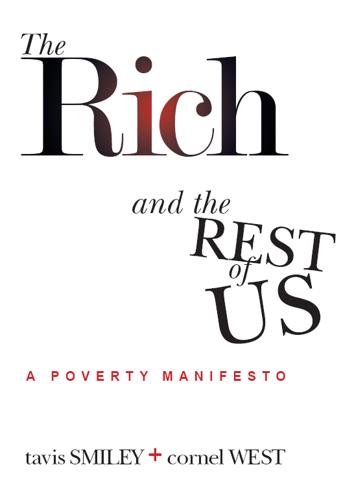
The Rich and the Rest of Us
by
Tavis Smiley
Published 15 Feb 2012
It took the victory of one oppressed man to inspire the multitude and dismantle the oppressive apartheid system in South Africa. After 27 years in prison on charges of treason, Nelson Mandela emerged, resolve unbroken, as a symbol of resistance that inspired Black South Africans and the world. In 1990, South African president F. W. de Klerk ordered the release of Mandela. Still fiercely active at the age of 72, Mandela led negotiations with the minority government that resulted in the end of apartheid and the beginning of a multiracial government. In 1994, Mandela was elected South Africa’s president in the country’s first free election.
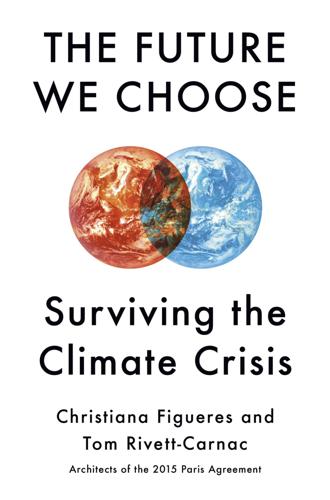
The Future We Choose: Surviving the Climate Crisis
by
Christiana Figueres
and
Tom Rivett-Carnac
Published 25 Feb 2020
Get offline and get to know your neighbors, people in the grocery line, or fellow commuters. Challenge your own assumptions, and be mindful of misinformation and disinformation. Share your hopes and fears in person, listen to others, and be honest and respectful. * * * — In 1990, after spending twenty-seven years in prison, Nelson Mandela was informed by President F. W. De Klerk that he would be freed in less than twenty-four hours. The following day Mandela walked out of Victor Verster Prison and into history. He had to pass through a courtyard, beyond which he would be a free man. As he later recounted, he knew that if he did not forgive his captors before he reached the outer wall, he never would.
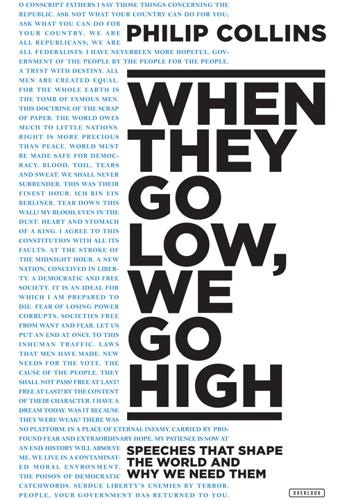
When They Go Low, We Go High: Speeches That Shape the World – and Why We Need Them
by
Philip Collins
Published 4 Oct 2017
Mandela’s vulnerability is evident in his prison letters, which are exquisitely written records of pain. Throughout his imprisonment Mandela was offered the chance of release, but always with unacceptable conditions attached. Finally, in 1989, in a meeting with President P. W. Botha shortly before he was succeeded by F. W. de Klerk, Mandela sensed a change of attitude. It was de Klerk who had the courage to concede, as he put it in the speech with which the two accepted a shared Nobel peace prize in 1993, that ‘a terrible wrong had been done to our country’. On 4.14 p.m. on 11 February 1990, televised live, Mandela walked out through the gates of Victor Verster prison near Cape Town into a world that he did not recognise but that recognised him.
…
He was up on a charge of being a traitor to the nation and of being a communist. He had been imprisoned under the Suppression of Communism Act. There is a Cold War aspect to the trial which is easily forgotten but which it is imperative for Mandela to deal with. This is what he is doing here. The Cold War comparison may go further still. In his reflections on the time, F. W. de Klerk noted that apartheid was not really defeated by protests, boycotts or sanctions. It fell because millions of educated black South Africans had become economically indispensable and the prejudice of a generation of young whites had been quelled by working with black colleagues. The apartheid generation were succeeded by their more liberal children.
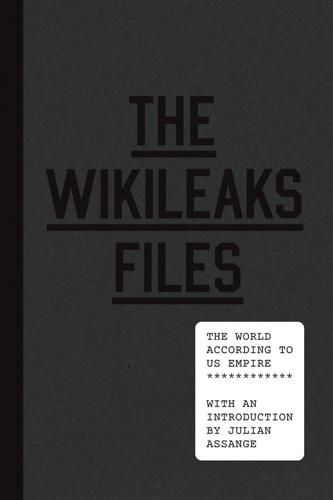
The WikiLeaks Files: The World According to US Empire
by
Wikileaks
Published 24 Aug 2015
A subsequent secret cable discussing a November 1989 meeting between the ANC’s International Department director, Thabo Mbeki, and Assistant Secretary Warren Clark highlights the differences between the US and the ANC [1989STATE368870_a]. In a contentious meeting, Mbeki made it clear that the ANC did not consider Buthelezi a “credible black leader,” partly because of his refusal to denounce attacks on ANC activists in Natal province. Mbeki also refused to give credit to the South African president at the time, F. W. de Klerk, for ongoing reforms including the release of political prisoners. Mbeki argued that de Klerk was responding to local and international pressure. Clark made it clear that the US would not accept language that designated the ANC as the sole representative of the South African people. He also insisted that language referring to sanctions was “unacceptable,” despite the Comprehensive Anti-Apartheid Act that had become law in 1986.
…
The growing unrest and clamor for change are reflected in a March 1990 cable, for instance, that transcribes a speech delivered in Durban by the US ambassador, which vividly reflects the contentious relations between the African nationalists led by Mandela and the Bush administration. The ambassador emphasized that the US continued to oppose apartheid but vowed that the US would reject any settlement that was not acceptable to all parties [90CAPETOWN623_a]. The ambassador noted that President Bush had invited both F. W. de Klerk and Nelson Mandela to the White House. He took time to praise de Klerk for releasing political prisoners, and called on US allies in Europe to support the South African prime minister. The speech underscores the Bush administration’s tilt toward the white-minority regime. The ambassador clearly signaled the Bush administration’s ambivalence about the US sanctions mandated by the Comprehensive Anti-Apartheid Act of 1986 and 1988.
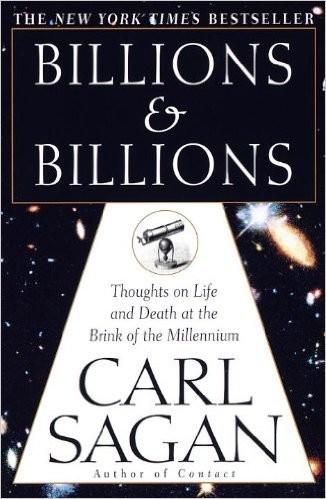
Billions & Billions: Thoughts on Life and Death at the Brink of the Millennium
by
Carl Sagan
Published 11 May 1998
Shattering a four-year-long worldwide voluntary moratorium, China resumes nuclear weapons testing; should we? How much should we give to charity? Serbian soldiers systematically rape Bosnian women; should Bosnian soldiers systematically rape Serbian women? After centuries of oppression, the Nationalist Party leader F. W de Klerk makes overtures to the African National Congress; should Nelson Mandela and the ANC have reciprocated? A coworker makes you look bad in front of the boss; should you try to get even? Should we cheat on our income tax returns? If we can get away with it? If an oil company supports a symphony orchestra or sponsors a refined TV drama, ought we to ignore its pollution of the environment?
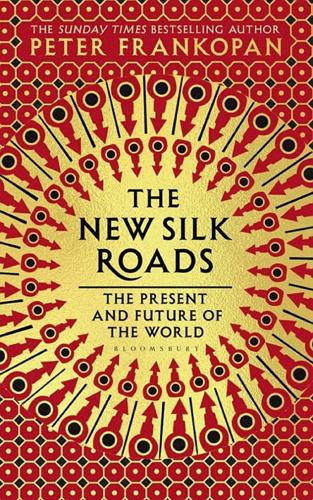
The New Silk Roads: The Present and Future of the World
by
Peter Frankopan
Published 14 Jun 2018
‘The heroic deeds of Boris Yeltsin and the Russian people’ had steered Russia onto a course of reform and democracy, said President Bill Clinton at a meeting with the Russian president in Vancouver in 1993. The prospect of a ‘newly productive and prosperous Russia’ was good for everyone, he noted.1 Hopeful times lay ahead too in South Africa, where fraught negotiations to end apartheid had advanced sufficiently for the Nobel committee to award the Peace Prize for 1993 to F. W. de Klerk and Nelson Mandela for their ‘their work for the peaceful termination of the apartheid regime, and for laying the foundations for a new democratic South Africa’.2 The award of the prestigious prize was a moment of hope for South Africa, for Africa and for the world – even if it later emerged that many of Mandela’s closest confidants urged him not to accept the prize if it meant having to share it with a man they referred to as ‘his oppressor’.
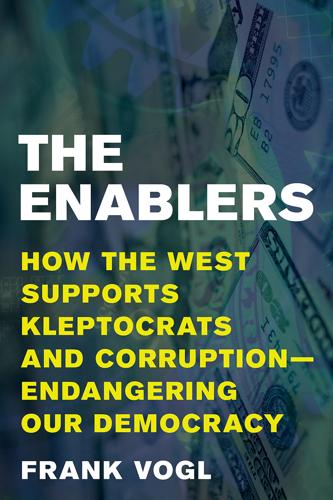
The Enablers: How the West Supports Kleptocrats and Corruption - Endangering Our Democracy
by
Frank Vogl
Published 14 Jul 2021
Their efforts succeeded with the forceful support of US president George H. Bush, who saw the historic event as a vital development for democracy and peace. The brilliance of that time was heightened even further when news came on the final day of the Davos meeting that South African president F. W. de Klerk had announced that the African National Congress would no longer be banned and that arrangements would be made to set the Congress’s leader, Nelson Mandela, free from the Robben Island prison, where he had spent twenty-seven years. The apartheid era, like the communist era in Eastern Europe, was ending.
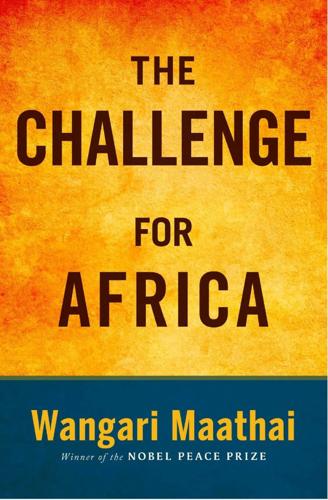
The Challenge for Africa
by
Wangari Maathai
Published 6 Apr 2009
That courage, however, also requires a leader (or his backers) who will acknowledge the rights of the people to self-determination and prosperity, and as a result demonstrate leadership that avoids bloodshed or further violence. So although the people of eastern Europe brought down the Berlin Wall, they needed Soviet leader Mikhail Gorbachev not to send in the tanks. While Nelson Mandela's principled stance led to sanctions against South Africa that brought unbearable pressure upon the apartheid regime, F. W. de Klerk had to concede that the era of apartheid had to come to an end. One of the reasons why success in securing democratic space continues to elude the populace in many African countries is that politicians tend to change with the tide. For instance, they become “democrats” when democracy is seen as the route to power.
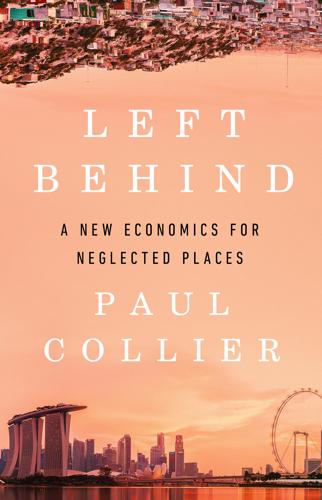
Left Behind
by
Paul Collier
Published 6 Aug 2024
During the grim decades of apartheid, South Africa was an Emerging Market Economy in which extreme polarization between a prosperous minority and a left-behind majority had repeatedly provoked mutinies. Supported internationally, the majority black population was eventually sufficiently powerful to force political change. Wisely, the president and leader of the ruling Afrikaans Party, F. W. de Klerk, realized that he had to make concessions, and magnificently, the leader of the oppressed majority, Nelson Mandela, realized that crushing the Afrikaans was neither materially advantageous nor morally right. The pair received the Nobel Peace Prize. Mandela had the wisdom to recognize that economic policies would be critical for the transition to an equal and prosperous society: there was already massive structural unemployment among the rapidly growing black workforce.
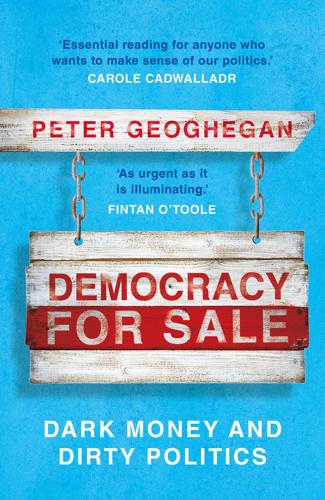
Democracy for Sale: Dark Money and Dirty Politics
by
Peter Geoghegan
Published 2 Jan 2020
In 2018, he said that his mines were worth a combined $100 million.78 But those who went looking for Banks’s riches in southern Africa reported finding little more than slag heaps and padlocked gates. The Lesotho mine produced only a handful of stones, with an estimated value of just £28,000. Banks’s colleague James Pryor, who had previously worked for Margaret Thatcher and F. W. de Klerk, said the mines were producing diamonds but “whether it’s massively economical or whether he’s making hundreds of thousands is another story”.79 In South Africa, Banks became embroiled in a bitter legal dispute with a former business partner that led to yet more questions about his Russian links.
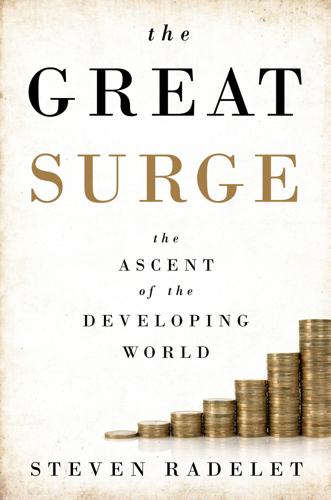
The Great Surge: The Ascent of the Developing World
by
Steven Radelet
Published 10 Nov 2015
Hungary elected a new parliament and sent a hundred thousand Soviet troops home. Within two years, new governments swept into power in Bulgaria, Georgia, Moldova, Ukraine, and several other countries. The effects went well beyond Eastern Europe. In South Africa, within days of the fall of the Wall, President F. W. de Klerk called together his cabinet to discuss legalizing the African National Congress Party and freeing Nelson Mandela. They did so twelve weeks later. When Mobutu Sese Seko—one of Africa’s most ruthless dictators—watched television coverage of Ceauşescu’s execution, he reportedly concluded that his own regime was in trouble.
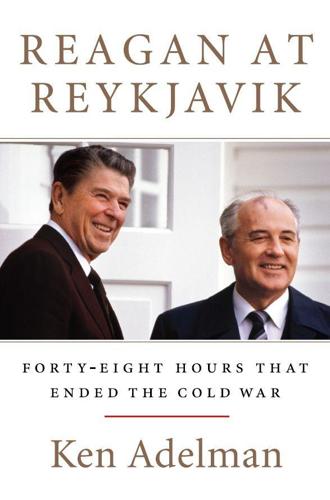
Reagan at Reykjavik: Forty-Eight Hours That Ended the Cold War
by
Ken Adelman
Published 5 May 2014
The arms race is slowing down.” The prize went to Gorbachev alone. The committee never mentioned Ronald Reagan. Previously, the committee had recognized joint contributions, such as Henry Kissinger and Le Duc Tho for negotiating the end of the Vietnam War (though that turned out poorly) and F. W. de Klerk and Nelson Mandela for undertaking a peaceful transition in South Africa (which turned out well). Clearly the end of the Cold War and the termination of Communist rule across Europe—both of which Reagan helped hasten—are grand, historic achievements worthy of a Nobel Prize. Freeing 415 million men, women, and children from totalitarian Communist rule will not dissipate soon, or ever.
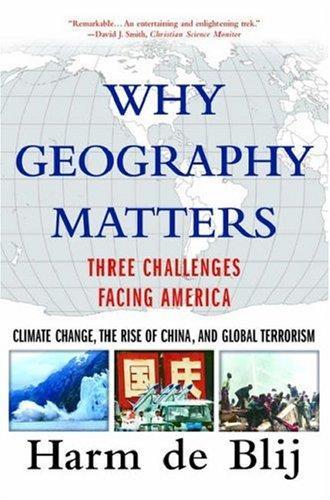
Why geography matters: three challenges facing America : climate change, the rise of China, and global terrorism
by
Harm J. De Blij
Published 15 Nov 2007
This is not over—AIDS is only the latest manifestation of just one of them—and it has reached the point where what benefits much of the rest of the world can actually hurt Africa's chances to catch up. Shortly after the remarkable transition to democratic government in South Africa, I happened to be in Australia where I heard President Mandela's Afrikaner partner in this remarkable process, F. W. de Klerk, present an address, unreported in the American media, in which he argued that what the world needed was an Indian Ocean version of the Pacific Rim phenomenon: an Indian Ocean Rim anchored by South Africa, Australia, Thailand, and Western India that would transform the economic geography of the Southern Hemisphere and "carry Africa into the twenty-first century."
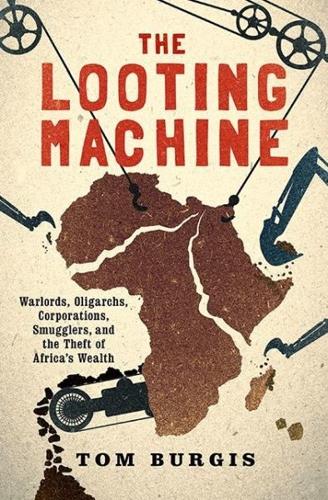
The Looting Machine: Warlords, Oligarchs, Corporations, Smugglers, and the Theft of Africa's Wealth
by
Tom Burgis
Published 24 Mar 2015
His relationship with De Beers soon soured, and he took a job at Rio Tinto, working on a copper mine close to the Kruger National Park, where the racial division was even more apparent. ‘I was working on the mine, in production, and I was really exposed to how things are,’ Moloi remembers. By 1990 mass protests and international sanctions had brought the apartheid regime to the verge of collapse. F. W. de Klerk released Nelson Mandela and lifted the ban on the African National Congress. The party set up working groups to prepare itself for government, and Moloi joined the one on science and technology. By 1993 the leading lights of the ANC’s economics team had identified the usefulness of a man who knew the mining business from the inside.
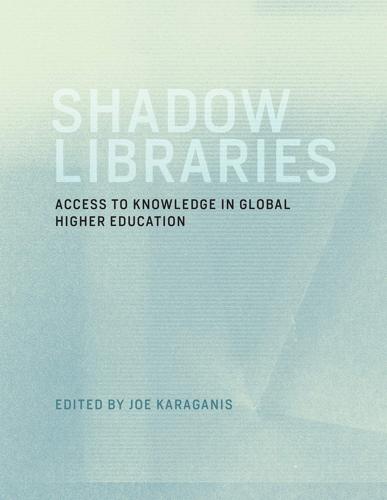
Shadow Libraries: Access to Knowledge in Global Higher Education
by
Joe Karaganis
Published 3 May 2018
This set of practical workarounds against censorship, the boycott, high costs, and inadequate distribution systems became one of the major forms of curricular continuity between the apartheid and post-apartheid periods. Post-apartheid Higher Education Policy The announcement of the end of apartheid came suddenly and, to most South Africans, unexpectedly, in a speech by President F. W. de Klerk in February 1990, which lifted the ban on the African National Congress, announced the release of Nelson Mandela from prison, and opened the way for negotiations for democratic elections. General elections, with full enfranchisement of black South Africans, took place four years later, resulting in a major victory by the ANC.
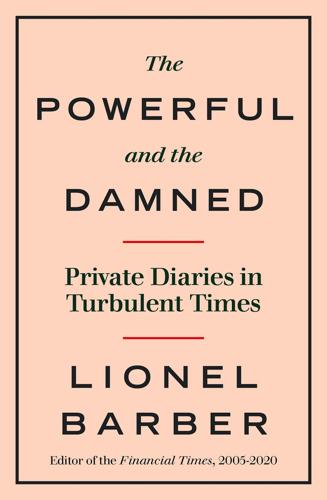
The Powerful and the Damned: Private Diaries in Turbulent Times
by
Lionel Barber
Published 5 Nov 2020
The best one, hopefully not apocryphal, features a Chinese ambassador in Africa who was asked why he always carried a copy of the pink paper. ‘We always read the FT in the embassy,’ he explained, ‘because capitalists never lie.’ TUESDAY, 5 MARCH We’ve dispatched to favoured parties and contributors a special anniversary book collection featuring 52 classic Lunch with the FT interviews. F.W. de Klerk, who presided over the end of apartheid in South Africa, has written a note of thanks. So has Anatoly Chubais, Mr Privatisation in post-Soviet Russia. Nigel Lawson, 80, is less impressed. ‘I am surprised that you were unable to agree to my suggestion of a complimentary subscription to FT online, as it would have been a friendly gesture which would have cost the FT absolutely nothing – zilch,’ he says in a handwritten note to me.
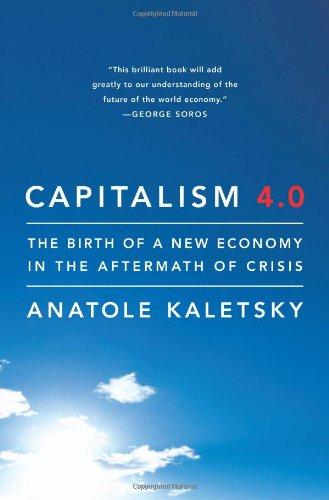
Capitalism 4.0: The Birth of a New Economy in the Aftermath of Crisis
by
Anatole Kaletsky
Published 22 Jun 2010
Only in this way can we properly understand why recent events happened and where they may lead. CHAPTER FOUR Annus Mirabilis Why did I free Nelson Mandela in February 1990? Because of the Berlin Wall. Once Communism collapsed in 1989, I felt sure that the ANC would abandon its revolutionary aspirations. This meant we had a chance to negotiate a peaceful end to Apartheid.1 —F.W. de Klerk, president of South Africa, 1989-94 You ask me why India broke out of the Hindu rate of growth in 1991. It is quite simple really. When we saw what happened to the Soviet Union in 1989, we realized that our reliance on central planning had been an historic mistake. The only alternative was to liberalize the economy.
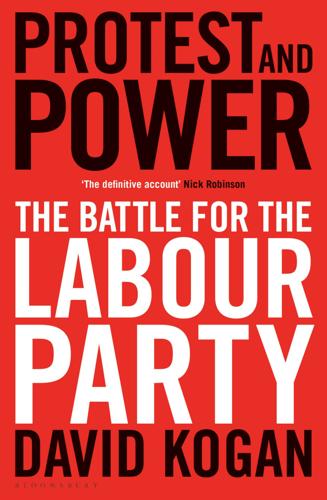
Protest and Power: The Battle for the Labour Party
by
David Kogan
Published 17 Apr 2019
In 1989, the last Russian troops left Afghanistan and Poland was ready to allow elections. By April 1989, this fever of liberalism had spread to China and Gorbachev became the first Soviet leader to visit China since the 1960s. Students occupied Tiananmen Square for a month only to be crushed by Chinese Army tanks on 4 June 1989. In August that year, F. W. de Klerk became the State President of South Africa, leading to the release of Nelson Mandela in February 1990. The Berlin wall opened in November 1989. It was incredible; the world had transformed. These were the most dramatic changes since the second world war. In Britain, 1989 saw the start of Margaret Thatcher’s hubris.
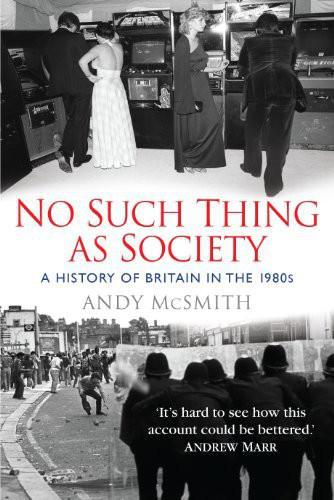
No Such Thing as Society
by
Andy McSmith
Published 19 Nov 2010
Though she had once been keen enough to see British athletes boycott the Moscow Olympics, she resolutely refused to see a case for sanctions against white-dominated South Africa. ‘Sanctions only work by causing unemployment and starvation and misery,’3 was her fixed view. She did, however, see a need for apartheid to reform itself, and when at last South Africa had a reforming political leader in President F.W. de Klerk, she hailed him as the new Gorbachev. The great symbolic event of February 1990 was the release of Nelson Mandela after more than twenty-seven years in prison, which did not mean that the apartheid system had been dismantled, but was a sign that the end was near. Thatcher had scheduled a press conference on the steps of Downing Street to mark Mandela’s release, but was so shocked to learn that as he emerged from prison he said that the ANC should not disarm while apartheid continued to exist that she cancelled her appearance.4 She wrote to President George Bush Sr and other world leaders suggesting that the ban on new investment in South Africa be lifted without delay.
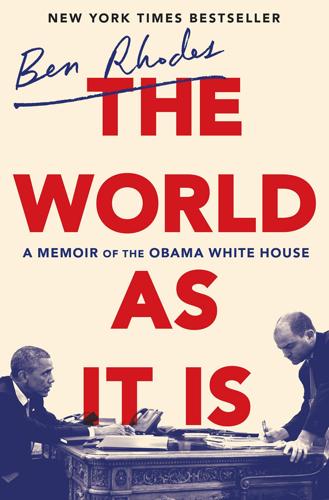
The World as It Is: A Memoir of the Obama White House
by
Ben Rhodes
Published 4 Jun 2018
Already, there were vigorous debates about whether it was right to shake Raúl’s hand. “What am I supposed to do? Snub the guy at a funeral?” His voice was rising a bit. I had taken him out of the moment he’d been in, honoring Mandela, and put him back into the reality of American politics. Obama started talking about how he’d gone out of his way to talk to F. W. de Klerk, the white leader who had released Mandela from prison and handed power over to him after an election. I mentioned that Desmond Tutu had closed the event. Obama was surprised—Tutu, no longer in the best graces of the ANC, had been left off the official printed program. “I feel bad I didn’t see him,” he said.

Class Warfare: Inside the Fight to Fix America's Schools
by
Steven Brill
Published 15 Aug 2011
Cunningham, in fact, helped Weingarten near the end of the session by seconding her point that many charter schools were terrible. “We view Randi as something like a de Klerk figure in South Africa,” a key reformer told me when I asked him about the Weingarten/Cunningham kumbaya session. He was referring to F. W. de Klerk, the white South African president who had helped end apartheid. “We need to support her and give her room.” A few weeks later I would see the same de Klerk treatment up close, when I sat on a panel in Washington on education reform. Weingarten was one of the speakers, as was James Shelton, an Education Department assistant deputy secretary.